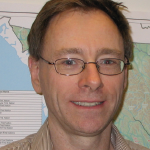
Voin_Sveta / shutterstock.com
Paul Adam, MSW, has long been passionate about research, but it was attending ACR/ARHP meetings that solidified his decision to pursue it in his social work career.
“I would get Arthritis Care & Research every month and look for articles pertaining to what I did, and go to the [ACR/ARHP] Annual Meeting and see a person presenting their journal article or see them on a committee,” he says. Getting to know them and realizing they were down to Earth helped alleviate the intimidation Mr. Adam first felt when wading into the research realm and convinced him that he, too, was cut out for research.
Early Days
Mr. Adam came to rheumatology somewhat accidentally. He was inspired by his mother, who lived with severe osteoarthritis. As a social worker, “I think we’re motivated to try and help people deal with things, and I wanted to help other people like her hopefully have better lives,” he says.
While in graduate school in Vancouver, he decided to pursue a research project at the Mary Pack Arthritis Centre with Patrick McGowan, PhD, and the experience cemented his interest in the field.
He has now worked at the Centre for three decades.

Mr. Adam
joined ARHP (now known as the Association of Rheumatology Professionals [ARP]) in 1990, upon attending the Annual Meeting with a group of other rheumatology professionals. “The meeting happened to be in Seattle that year, so we took a bus down,” he says. “I was so impressed with the quality of the education provided—the range of speakers—[that] I was hooked after that first meeting.”
The first half of Mr. Adam’s career was dedicated to counseling. He focused on helping people navigate the health and social challenges—such as depression, job security, financial concerns and housing—that can accompany a rheumatic disease diagnosis.
“Arthritis can have a big impact on a family, too,” says Mr. Adam. “That’s another area where counseling can help, and I enjoyed seeing someone coping better after they were finished working with us.”
Tools for Patients
The second half of his career has been committed to more administrative work, but in particular, helping create useful tools for rheumatology patients and the rheumatologists who treat them.
“As a social worker, I found that it took people two to three years to really get a handle on interpreting their symptoms and then knowing what to do about them,” Mr. Adam says. “I wondered if there was a way to make that easier and shorten that learning curve.”
He worked with a team of researchers to create a computer-based tool to measure rheumatoid arthritis disease activity and deliver individualized recommendations to patients. The tool also assesses clinical depression and provides recommendations for online resources to help people manage it.
“We are looking at how online tools can empower patients to better manage their disease,” Mr. Adam explains.
The tool, which was tested in a six-month trial, proved helpful for long-time patients, too, he says, because it generates reports they can bring to their providers. The research team has received grants to refine the tool based on participant feedback and to create an app, which is still being evaluated.
“Some patients have said they have a hard time remembering how long symptoms like pain lasted, because maybe one-and-a-half months ago they were feeling bad but now they’re feeling good and they want to forget,” he says. The tool “graphs what’s happening and gets rheumatologists the information they need to consider whether changes are required in their medical management.”
‘I was so impressed with the quality of the education provided—the range of speakers—[that] I was hooked after that first [Annual Meeting].’ —Paul Adam, MSW
ARP Service
Mr. Adam has brought his research skills with him in service to ARP. As a member of numerous committees, including the Annual Meeting Planning Committee, the ARHP Executive Committee and, most recently, the Community Involvement Committee, he has used his skills to “dive into the literature and consider all facets of a problem, figuring out what we may need to do to tweak things for best practices for our organization.”
For example, as chair of the E-Learning Committee, he worked on a white paper to determine best practices for individualized learning.
“As a social worker, what I would need to know about rheumatoid arthritis is different from what a physical therapist might need, versus what a nurse might need,” he says. “Someone new to the field versus someone 30 years in probably has different needs … . How do you individualize the learning experience to guide learners to the educational content that is most relevant?”
At the moment, Mr. Adam is working with other task group members to optimize communities of practice to ensure members with similar needs can connect and engage with one another virtually, learning and sharing knowledge. He recently submitted a report on these efforts.
“For the same reasons I joined the AHRP and valued my involvement 30 years ago, a virtual community does that in a whole different way,” he says.
And he does believe he’s benefitted immen-sely from his participation in ARHP/ARP.
“Eighty percent of my job is doing the same thing, but a portion of my job can change based on the issues I am dealing with, and having access to the clinicians at the ARP has been really useful, whether it’s just for a presentation or to email people [to gain a better understanding of] the work they’ve done in this area,” Mr. Adam says. “It’s meant being exposed to a wide range of approaches to different problems depending on what people are researching.”
Hobbies & Activities
Outside his professional duties, Mr. Adam has enjoyed an active life—snowshoeing and playing squash and volleyball. But he has had to adapt his lifestyle as osteoarthritis has begun to affect him. Fortunately, he says, Vancouver is a “very walkable city,” and he continues to get his 10,000 steps every day of the year.
Mr. Adam is also passionate about photography, food and cooking. “Being in Vancouver, we have access to amazing seafood and lots of organic vegetables and greens. Turning that into healthy, yummy meals is what I love to do.”
Kelly April Tyrrell writes about health, science and health policy. She lives in Madison, Wis.


